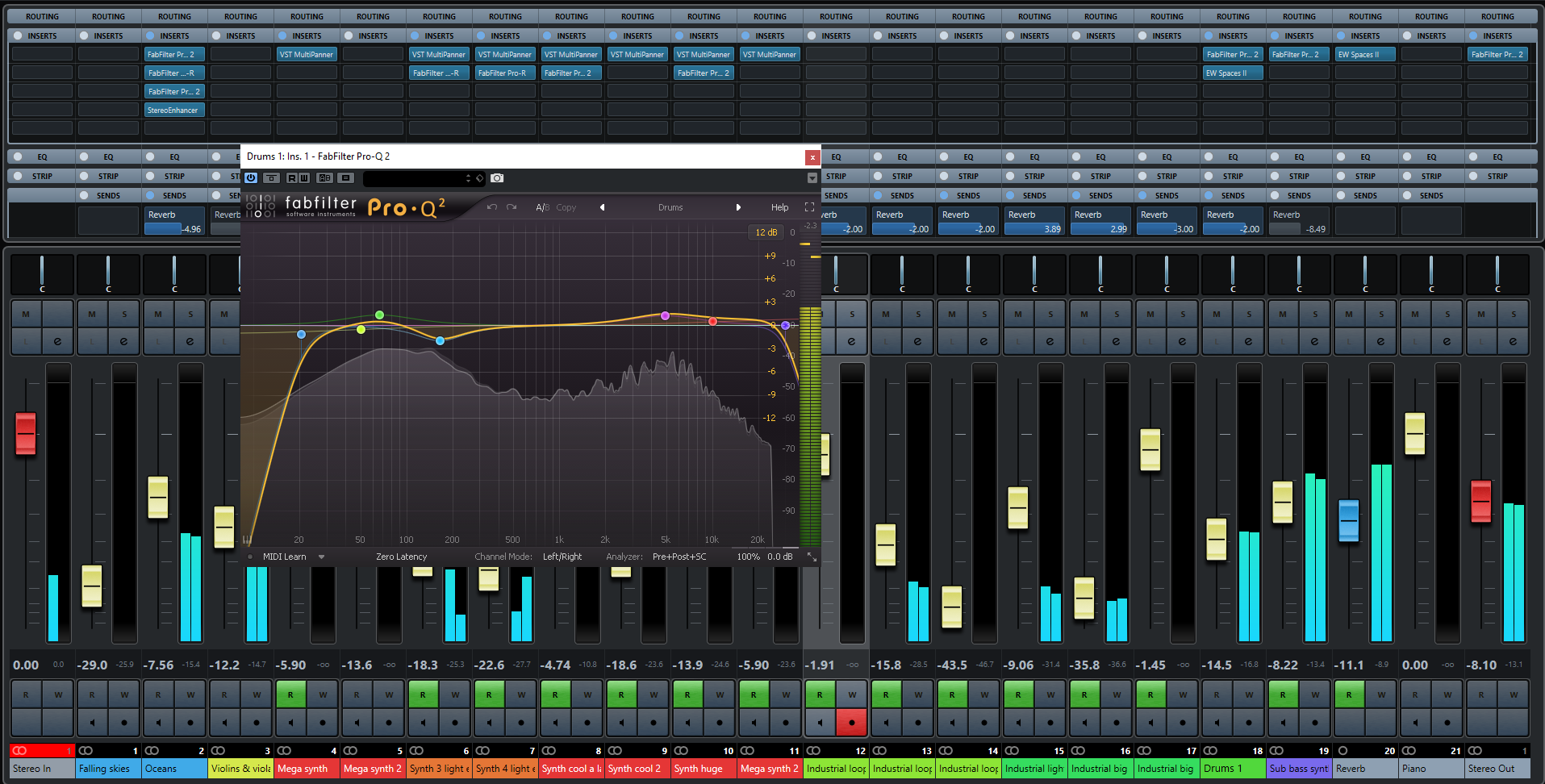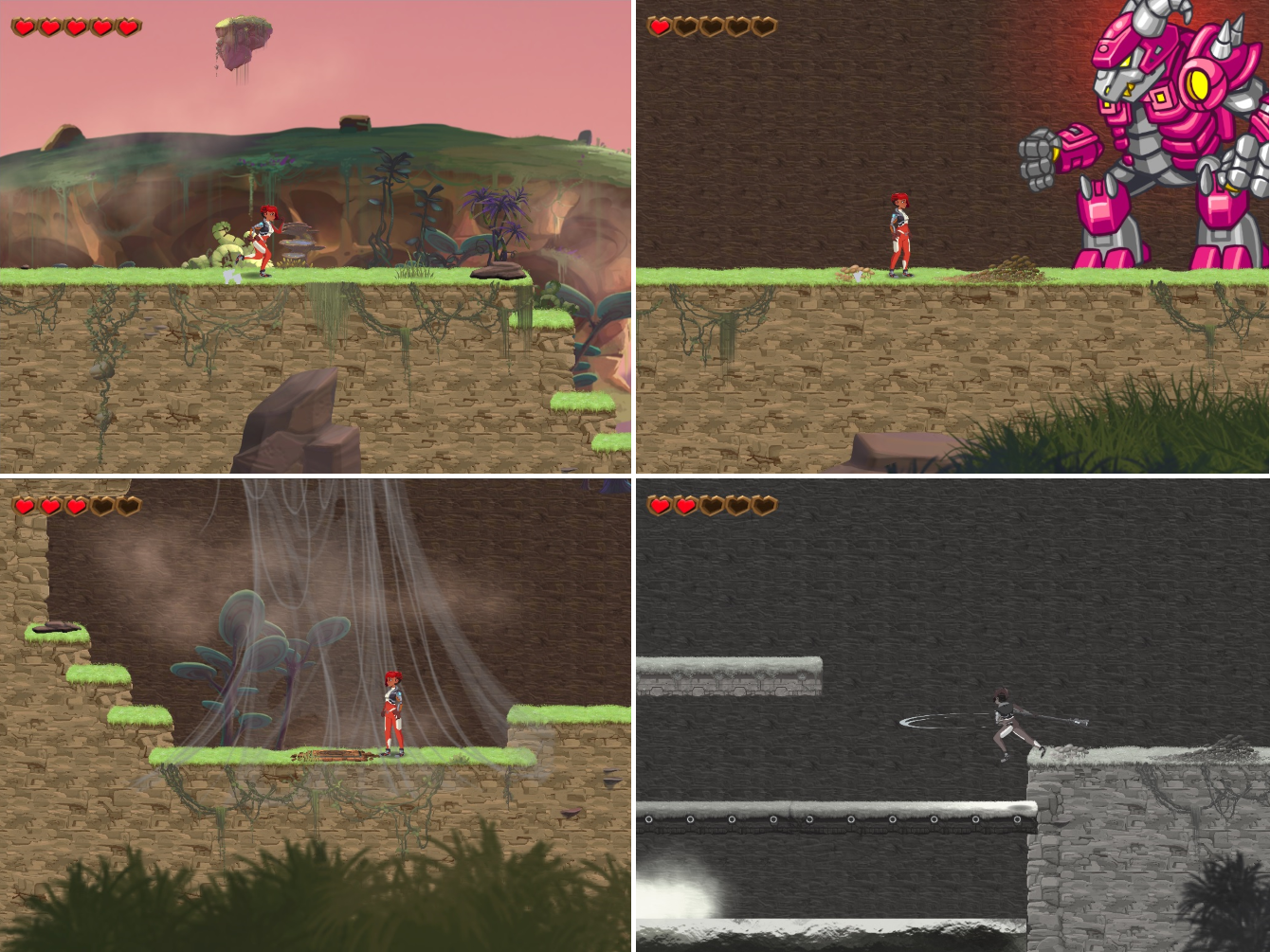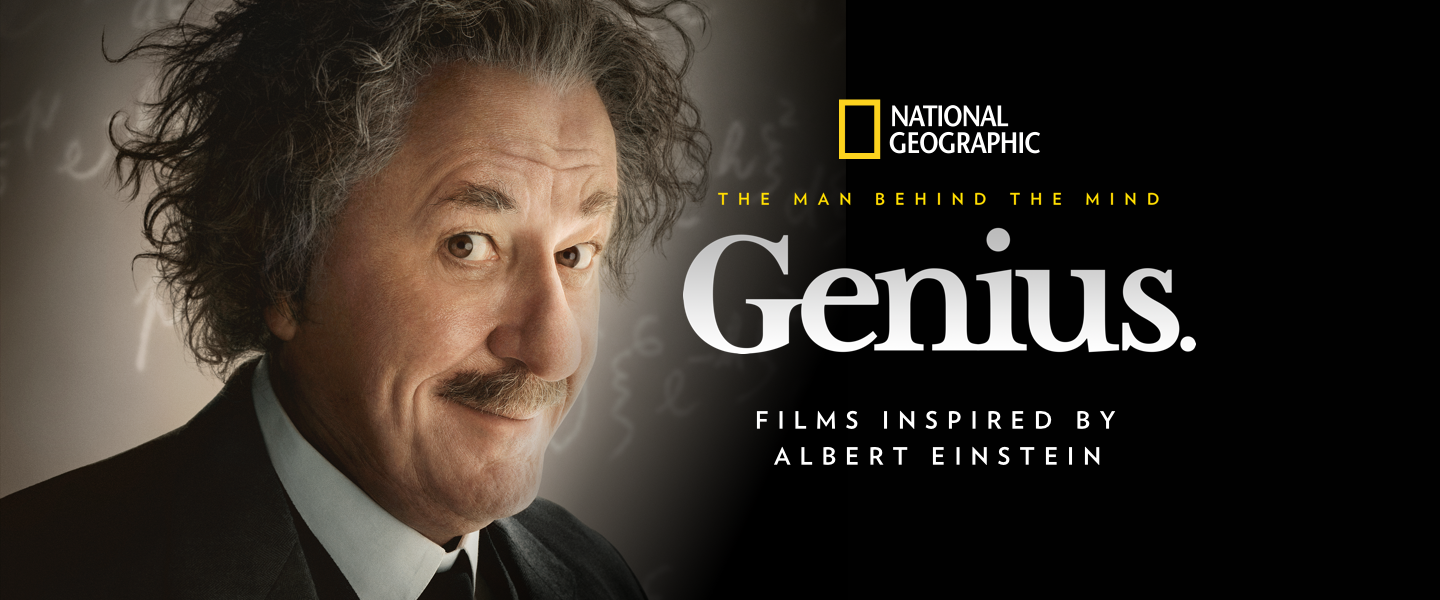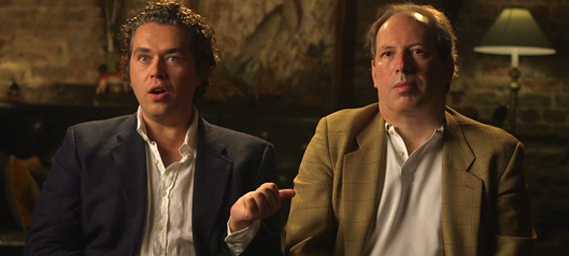In december 2018, the Ludum Dare 43 (https://ldjam.com/) contest was on!
This competition is held every 3 to 6 months and asks participants to develop a fully playable video game, in just a week-end.
My friends invited me to participate and join their team. For this project, we were three: a game designer, a programmer and a music composer / sound designer(myself). My friends decided to create a 2D platform game in a cyberpunk universe. The game would have exploration and fighting phases, including a Boss fight at the end of the level.
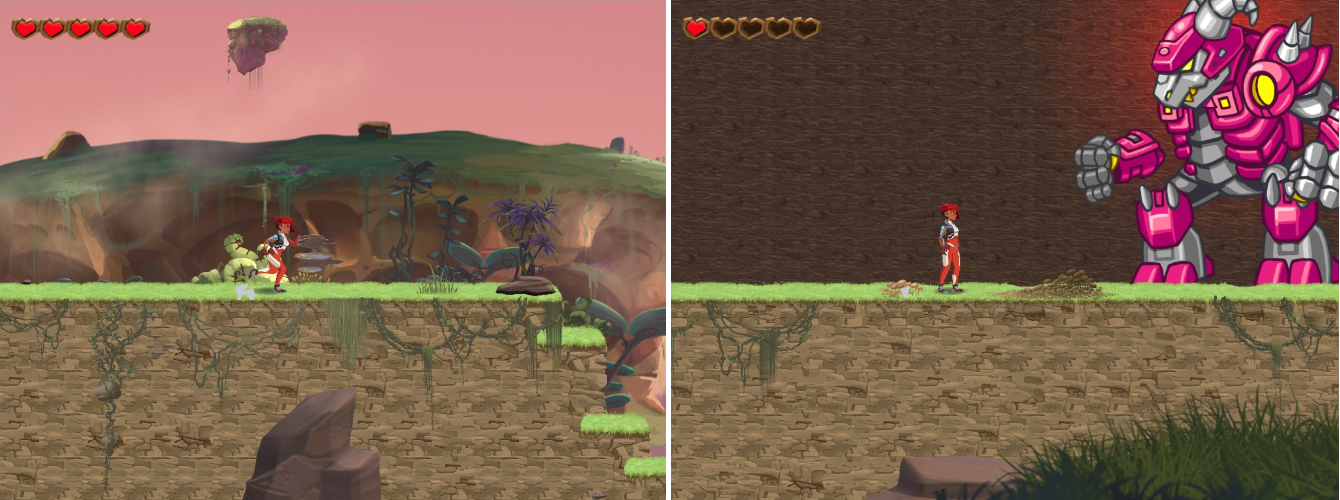
My aim was to dive the player into a cyberpunk, yet fun universe, with a strong sound identity and consistency with all music tracks.
We came up with the idea to have a main title theme as an accompaniement to exploration phases, and a second more energetic theme for the fighting scenes (including the boss encounter at the end of the game).
After some listening of diverse soundtracks in the hopes to get inspiration (OST from Deus Ex: Human Revolution, Portal, I Robot), I proposed to integrate as main instruments syunthtizers for melodic lines, indusctrial percussions for the rythm parts and aerial keyboard layers for the harmony.
After a day of work, I had finised composing and mixing these two themes: “Chill Sad Theme” (exploration theme) and “Boss Fight Theme” (combat theme).
I especially took care in working to the loopable aspect of the tracks, so that they could be player over and over without anyone noticing the transition between the track ending and starting again.
For the synths, I mainly used “Retrologue 2” from Steinberg, which is part of Cubase PRO 10 which I use for music production.
For industrial percussions, I used “Damage” from Heavyocity, which completely answered al the criteria and had all the sounds that I was looking for (robotic and industrial sounds).
For aerial keyboard layers and sound design works, I mainly used “Gravity” from Heavyocity which is filled with exceptionnal sonorities.
These tools got me inspired and helped me in reaching the sound and energy that I was looking for, which we all felt was a very good fit to the game.
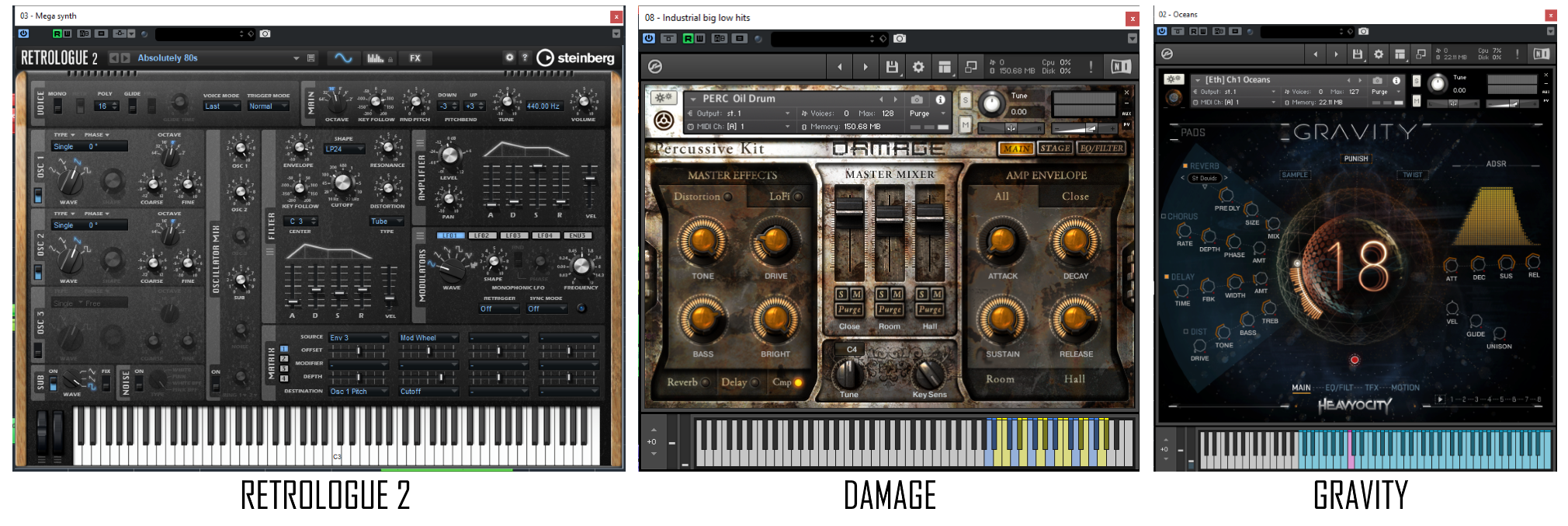
My friends immediately integrated them into the game. It was all fitting, but my girlfriend thought the “Chill Sad Theme” was maybe a little too calm and sad. She helped me realize that the game probably needed a fun element to it which the theme didn’t bring.
And so i made another track called “Synth Adventure Theme”, which became the new main theme, more rythmic, melodic and fun! 🙂
Synth Adventure Theme
All the tracks composed for the game share the same tonality (Bb major scale), so that we could switch smoothly from one to another during the different phases of the game.
I spent the rest of the week-end tweaking tempos and mixing the tracks, while also composing two other “jingles” for the winning and loosing screens.
Sadly, they didn’t have the time to include them in the finished game because the contest was close to ending.
Our game “Pyrrhus” submitted for this contest can be played by clicking this link :
(Some bug still have to be fixed and some adjustements are to be made)
A great bravo to my friends who made this quality game in just a very short period of time, and thank you for the nice and interesting exchanges we had for this project.
We are quite proud of the finished product, given that it was a first for me and my programmer friend to participate to this kind of contest.
You can hear bellow all of the tracks that I composed for this project, including winning and loosing jingles.
Main music production softwares and tools used for composition, production and mixing for this project:
- Steinberg Cubase Pro 10 (composition, production and mixing)
- Steinberg Retrologue 2 (synths)
- Heavyocity Damage (industrial percussions)
- Heavyocity Gravity (keyboard layers, aerials sounds)
- Spitfire Audio Albion V: Tundra (violins)
- Heavyocity Forzo (brass instruments)
- QuantumLeap / EastWest sounds Goliath (sub-basses)
- QuantumLeap / EastWest sounds Spaces 2 (reverbs)
- FabFilter Pro R (additional reverbs)
- FabFilter Pro Q2 (EQ)
- FabFilter Pro C2 (compression audio)
Some screen captures of the project:
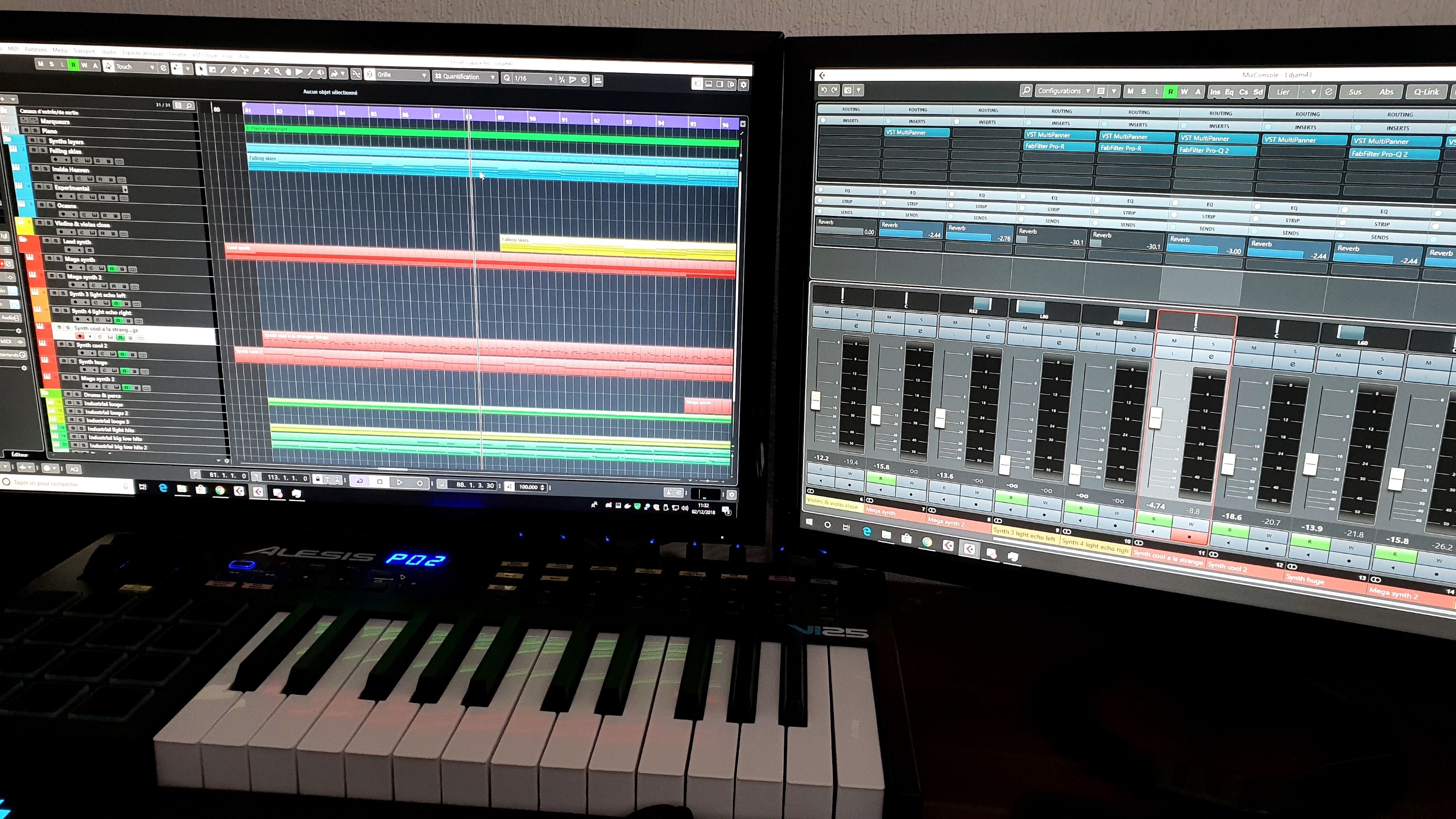
Composition
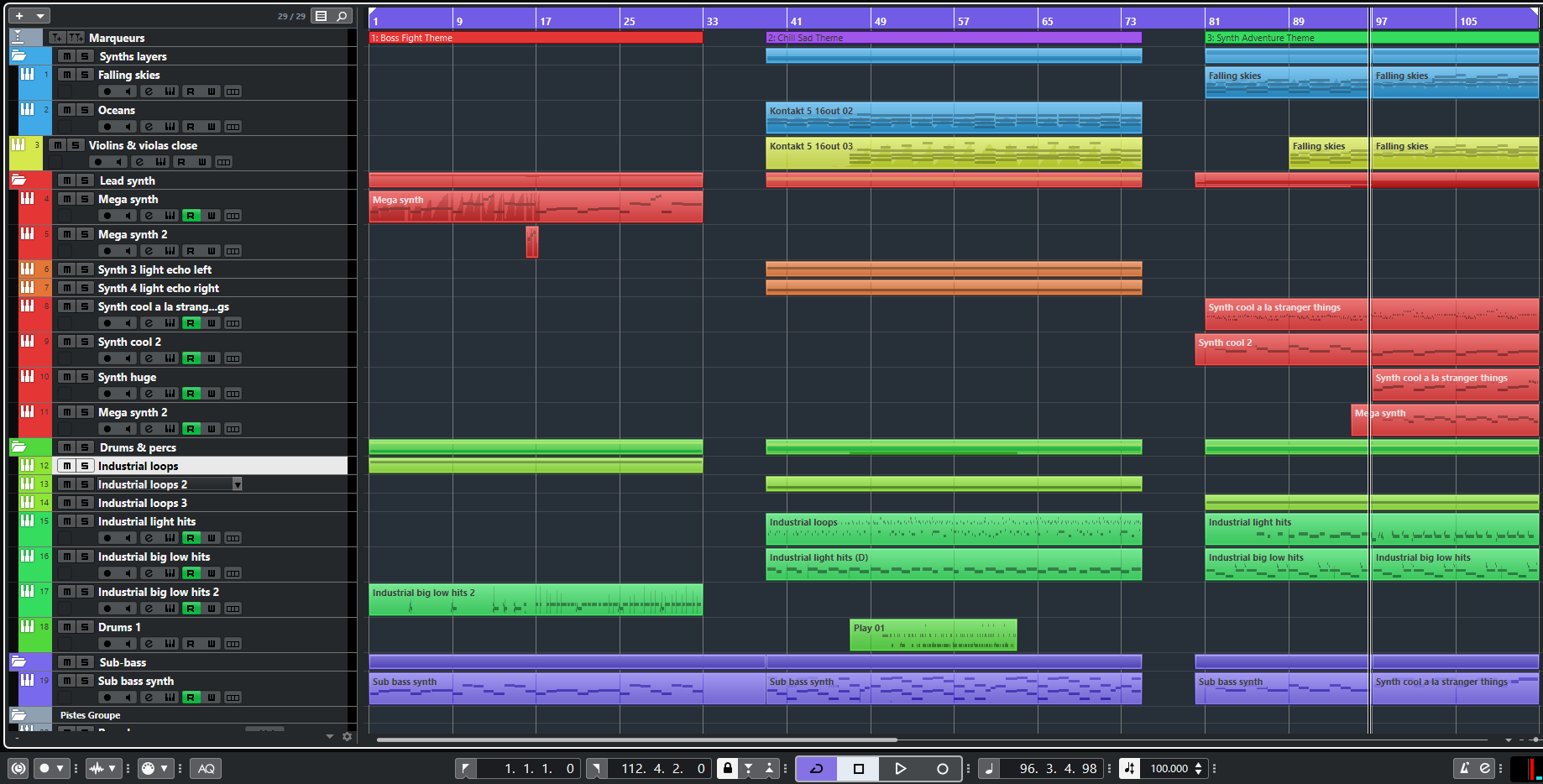
Mixing
